Principles
Ray Dalio believes an idea meritocracy (a system that brings together smart, independent thinkers and has them disagree to come up with the best collective thinking and resolve their disagreement in a weighted believability way) is the best decision-making system because it requires honesty and leads to continual improvement.
The first part of Principles, Where I’m Coming From, primarily reflect Dalio’s biography. Here are a few points:
- Meaningful work and meaningful relationships are better than money.
- Bad times with good reflections provide the best lessons.
- The most significant success is having others do well without you.
- Happiness comes from struggling well.
There are fewer types of people than there are people and far fewer types of situations than there are situations. Hence, matching people and situations is vital. Dalio realized the best way he could succeed was to seek out the smartest people and identify who disagrees with him so he could understand their reasoning. He learned why not to have an opinion, develop tests and systemize universal time principles and balance risks in a process that keep significant upsides while capping downsides.
The second part of Principles focuses on life principles. Dalio views problems as games and puzzles that he must solve. Ray Dalio says he has learned to become such a fan of reality that he loves fact even when it’s cruel. He furthermore added that we aren’t born knowing what’s true, we have to find that out. He claims that the best way to achieve that is to be radically open-minded and radically transparent. We learn with a feedback loop from our actions and beliefs. He feels radical open-mindedness improves those feedback loops.
Radical transparency, on the other hand, means facing the truth and speaking the truth freely. It can be difficult because it opens one up to criticism, but fearing criticism can be tragic because, without it, you will not learn.The more you face criticism, the comfortable you will be.
It is evolution and progress itself that makes us happy and fulfilled rather than achieving the goal or the material wealth. But to evolve, remember “no pain, no gain.” Ray Dalio says there is no avoiding pain, especially when you’re after an ambitious goal. What Ray Dalio wants to give people is not what they wish, which ultimately makes them weaker, but the strength to deal with reality to get what they want by themselves, which eventually will make them stronger and more independent.
As you gather it all together, to have the best life possible you have to know what decisions aren’t the best ones, which ones are and dare to make them. To acquire principles that work, it is essential that you embrace reality and deal with it as it is.
The third part of this book focuses on work principle. Ray Dalio says for groups to function well, the working principle has to be aligned with the members’ life principles. Not aligned with everything but on to the most important ones. To get the culture right, you have to :
- Trust radical truth and radical transparency, i.e., it is always best to shoot straight and be honest even when the news is not positive. Ray Dalio says he believes in a healthier form of loyalty founded on exploring what’s true
- Cultivate meaningful work and relationships: i.e., develop a meaningful relationship whereby you care about each other and can have a great time together both inside and outside the organization.
- Create a culture of learning from mistakes, i.e., making a mistake is painful and okay, but it’s not okay to not learn from them.
Pulling it all together, Ray Dalio says, we work together to accomplish three things: more leverage to achieve our goals, quality relationships, and money that allows us to buy what we want for ourselves and others.
In conclusion, it is important to highlight that all rules have exceptions and you should use your judgment and common sense.
THE BIG THREE – KEY POINTS
Key point #1: Idea meritocracy is the best system for decision making
Key point #2: Radical mindedness and Radical Transparency are the best ways to find out what’s true.
Key point #3: Work Principle and Life principle are the primary focus of Principles.
One Last Thing
“If you’re not failing, you’re not pushing your limits, and if you’re not pushing your limits, you’re not maximizing your potential”
―
